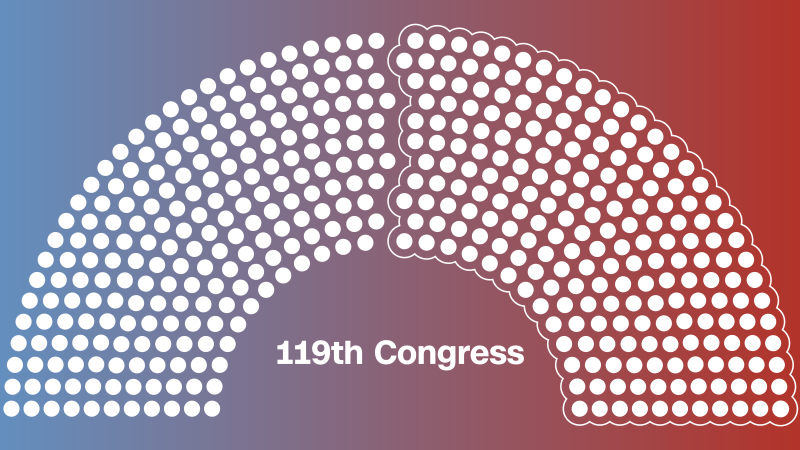Washington
CNN
—
Speaker Mike Johnson has a little more room in his historically narrow majority.
The speaker swore Republicans Randy Fine and Jimmy Patronis into Congress a day after their party held onto two seats in Florida special elections to replace national security adviser Mike Waltz and former Rep. Matt Gaetz, respectively.
At the start of the 119th Congress, Johnson was already facing the narrowest House majority in nearly 100 years. The tight margin has created a major challenge for congressional Republicans as they seek to enact President Donald Trump’s agenda.
That brings the partisan breakdown to 220 Republicans and 213 Democrats, one of the thinnest House majorities in history.
Republicans won 220 House seats in the November elections, while Democrats won 215, the most narrowly divided House majority since the outset of the Great Depression, almost a century ago.
At the start of the new session of Congress, however, the partisan breakdown stood at 219 to 215, because former GOP Rep. Matt Gaetz of Florida opted not to return to Congress.
Passing a bill in the House requires a majority of all members present and voting. The magic number is 218 if every member shows up to vote and all 435 seats are filled, but that can change if there are vacancies or absences. A tie vote in the House is a fail.
Two seats in the chamber are vacant, however, meaning 217 votes are currently needed to approve legislation. A special election is scheduled for only one of the vacant seats.
If Republicans aren’t in lockstep, then House GOP leaders will need Democrats to pass legislation.
The last time a minority in the House held 215 or more seats was after the 1930 elections, when Republicans won 218 seats, Democrats won 216 and the Farmer-Labor Party won one.
The 72nd Congress — which took place in the early years of the Great Depression era — officially started in March 1931, but did not actually convene to conduct legislative business until months later, in December 1931.
At the official start of that term, in March, the House margin had narrowed even further — to 217 seats for Republicans to 216 for Democrats with one seat for the Farmer-Labor party and one vacancy as a result of the death of one Republican.
In an unusual turn of events, however, the partisan breakdown changed significantly by the time Congress convened when a series of additional deaths and ensuing special elections flipped control of the chamber to Democrats, though the margin remained narrow.
According to House historical records, the 65th Congress had the closest party split in American history, but in that case, the partisan division was so narrow that neither party secured an outright majority in the House based on election results, which left Republicans with 215 seats and Democrats with 214. As a result, a handful of third-party lawmakers played a decisive role when the House convened to elect a speaker.
With Republicans in control of Washington, there will be intense pressure on GOP leaders to swiftly enact Trump’s agenda. But the extraordinarily tight margin gives any rank-and-file lawmaker the ability to exert outsized influence by making demands on the speaker.
Johnson has already had to contend with that – frequently in the form of pressure from his right flank, a dynamic that now set to intensify.
Johnson won the speakership in a nail-biter of a vote at the start of the 119th Congress, a sign of the difficulty of overseeing such a narrow majority with little room for error.
To be elected speaker, a candidate needs to win a majority of members who vote for a specific person on the House floor.
The election took place with the majority at 219 to 215, which meant that Johnson could only lose a single Republican votes if every lawmaker voted and all Democrats voted against him.
After the initial roll call vote, Johnson had come up short, with three GOP defections. Rep. Thomas Massie of Kentucky had voted for Rep. Tom Emmer of Minnesota; Rep. Ralph Norman of South Carolina had voted for Rep. Jim Jordan of Ohio; and Rep. Keith Self of Texas had voted for Rep. Byron Donalds of Florida.
But after everyone had voted, the vote was held open for an extended period of time — meaning that it was not gaveled to an official close — as Johnson worked to lock down the votes. Then, in an abrupt turn of events, Self and Norman flipped their votes in support of Johnson, effectively handing him the gavel.
This story and headline have been updated with additional developments.
CNN’s Zach Wolf contributed to this report.

